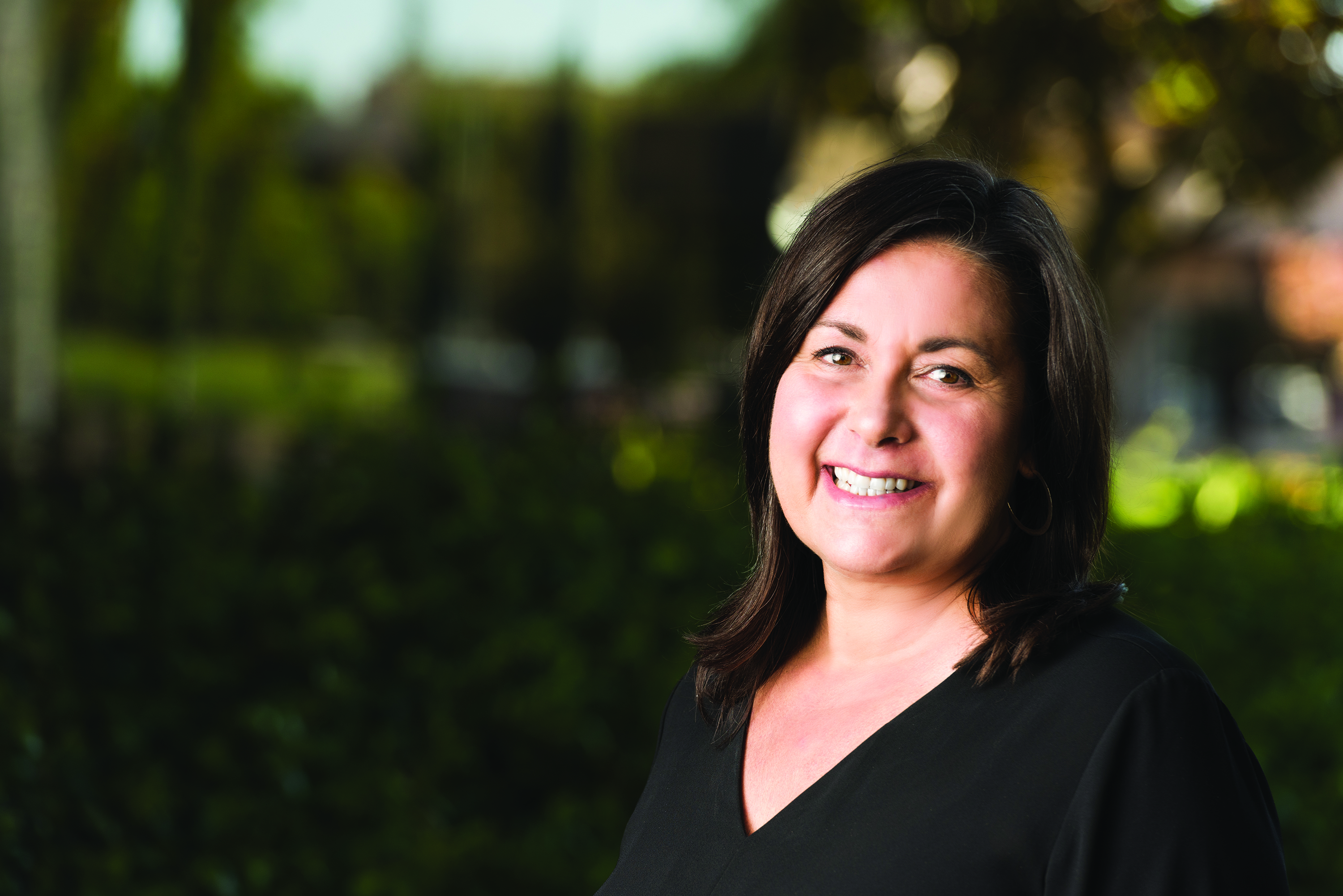Two years after Carol Spindler O’Hara moved from San Francisco to Sonoma County in 1998, she took a break from public accounting — nine years to be exact — to be with her young children. But her new environment also inspired her to rejoin the profession 10 years ago, when San Francisco-headquartered BPM acquired a firm in nearby Santa Rosa, and O’Hara was given the chance to translate a passion for wine and vineyards she had developed in her time away into leading the Top 100 Firm’s consumer products industry group.
O’Hara worked with many industries during her 18 years with what is now Big Four firm KPMG (seven of them as an audit partner), and she was now tasked with building out BPM’s audit practice in California’s North Bay. Focusing her energy on the wine industry was a logical move given O’Hara’s location in Wine Country.
“I quickly fell in love with the wine and food scene in Sonoma County, which is really beautiful,” O’Hara explained. “I joined BPM 10 years ago after they merged with a small local practice in Santa Rosa. My background is as an audit partner, and the firm they merged with is a tax shop. I approached the BPM managing partner [then-CEO Stephen Mayer] to join up here to build out the audit practice. I was initially focused on the area of wine, for obvious reasons — there are a lot of wineries in Sonoma and Napa. In the past eight years we’ve grown out the wine practice quite substantially, into a robust wine practice.”
More recently, O’Hara has widened the practice’s scope. “A couple of years ago, I was asked to expand the focus to include all consumer products,” she explained. “I dug in to see what we would focus on. Natural, sustainable, organic, healthy are areas of consumer products that are growing massively. Conventional consumer products [are experiencing] single-digit growth, while organic, sustainable [products] are growing in double digits. The Bay Area is becoming a center for growth of natural products.”
Consumer demand and the proximity of Silicon Valley has created what O’Hara deemed an “explosion” in the local food-tech market, with meat-substitution, protein-alternative, and meal-kit delivery companies, among others, garnering major funding and going public.
Apart from these headline-grabbing companies, O’Hara explained that there are many organizations that have been operating in the food-tech space for decades — many also in the Bay Area. Among its roughly 30 food-tech clients, BPM counts older companies like Traditional Medicinals and the nation’s first organic creamery, Straus Family Creamery, along with newer startups like San Francisco-based cellular agriculture dairy company Perfect Day. Overall, BPM’s consumer products practice serves around 100 clients.
“The whole tech sector in the Bay Area is morphing into the food-tech space,” she said, explaining that BPM’s mindset was to “focus on these areas that are exploding. [Also] of interest is a focus on food, and healthy, local food. The third trend is that many of these companies in this space are long-time pioneers of what are called mission-driven companies. … I think that’s the business model of the future, to embrace more than profit.”
Practicing what they preach
BPM itself operates under a similar model, and recently applied to be one of a minority of accounting firms to receive B Corp certification, earned by organizations that attain measurable social and environmental performance benchmarks.
While BPM serves some pioneers in the healthy, organic and food-tech markets, it is for the younger startups that the firm can provide a unique service model, O’Hara explained. BPM forges relationships with many of these types of companies through local boards and membership organizations like the nonprofit Naturally Bay Area. “The companies at Naturally Bay Area are at an early stage,” O’Hara explained. “We have a group called BEST — the Business Enterprise Services Team — [that provides] outsourced accounting and bookkeeping services, working with very early-stage companies that don’t need any assurance services, but bookkeeping and tax returns. As the companies grow and get funding, they might need a review or an audit to be able to do that. … We work with all different stages and sizes.”
While the flexibility required for these early-stage companies can be challenging, O’Hara acknowledged, making those service adjustments can really pay off down the road. “We have to be creative in the way we work with them, in structuring our fees. It works for them in the early stage, and in the later stage, it works for us. It’s a win-win. We talk to clients about it, and try to be flexible. When we are in a long-term relationship of working with them, the fees are fair for both sides. The fees are lower early on, and when they do better, we do better.”
What O’Hara deems a worthy investment also differentiates BPM from other national and regional firms that seek larger clients, she said. Client relationships can then blossom to encompass the many advisory services BPM provides, which O’Hara stressed are very relationship-focused. “We have a full service of assurance, tax and advisory expertise, with a solid array of specialty services,” she explained. “We are hired for that expertise — for cost segregation, local and international tax. … Our experts were brought on board from national firms. We work with people throughout their life cycle.”
O’Hara’s take on business development is fitting for the leader of a practice prioritizing sustainable clients: “My approach is, if I want to become a part of, and do business with, a community, I need to join that community, become part of the ecosystem of that community.”